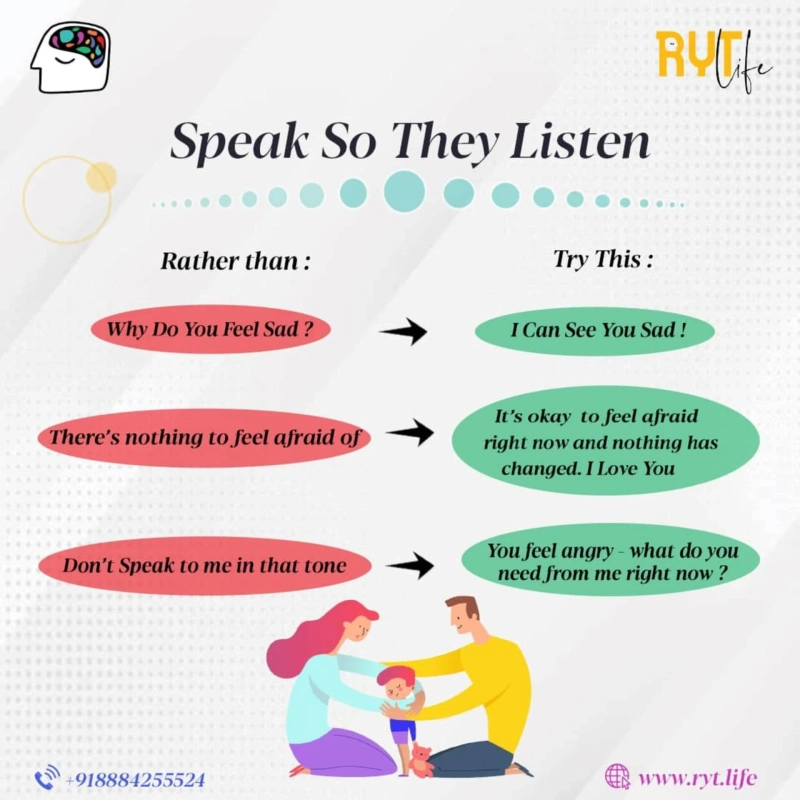Parenting advocates unconditional love. Nurturing a child requires a casket of tangible and intangible stuff. Food, clothing and shelter are all tangible things but more important are the intangible ones, i.e. love, emotional support and care. Nurturing becomes a challenge if your child is facing issues with his/her behaviour. Parents need to concentrate on the holistic development of their children. They need to take care of their emotions, moods, behaviour and also find out if their child is troubled and check if they need help.
1.Identify the capabilities of your child
Identify the capabilities of your child, Parents should communicate and listen to their children in order to identify their capabilities because children are the ones who know their strengths better than anyone else. These strengths are inner qualities/inborn skills or talents that help us have meaningful contributions to life. Parents can help in identifying and nurturing such skills or capabilities at an early age. Play with your children and you will learn about their preferences, the way they interact and the way they perceive themselves. You can also understand what makes your child unique. Talk to them often so that they can express themselves and pay attention to what they say. Also, support them in understanding their strengths and interests.
2. Spend Quality Time With Your Children
Spend quality Time With Your Children, because children irrespective of their age group want the attention of their parents and would love to spend some time with their parents so even if you have a busy schedule give some time to your children. Your children deserve your attention and not just your gifts to them. Your time spent with them is precious and will impact them positively as they grow. Time is dear and each moment spent with your children adorns their lives. Quality time with them will build higher self-esteem and encourage their positive behaviour. The time you spend with your children will strengthen your family and institutes a stable relationship with your children. Children improve their communication skills and it will help them excel in all areas of life.
3. Recognise the Behavioural Difference since children keep growing.
They may experience some problems which their young minds may not be able to comprehend and they may not know how to overcome these struggles. They begin to express their problems through a change in their behaviour. Suddenly a well-behaved child may exhibit poor behaviour like getting aggressive often, fighting or getting bossy or some other unruly acts. Behaviour may differ depending on the age of the child.
A sudden change in grades of a child who used to get good grades now ends up with low grades in studies are an alarming sign. School going children face pressures from teachers, parents as well as peer pressure. They tend to experience a lot of intra-personal conflicts due to these pressures and this leads to low grades over a short period of time.
Sometimes children face anxiety-like relentless fears, excessive worry. Anxiety may disrupt their ability to perform in school or with children of their age or social situations. Some children face difficulty in paying attention or expressing impulsive behaviour or hyperactive behaviour. Some may also have a combination of these due to the rapid physical and mental changes they are going through. This may also be caused as a result of attention deficit/hyperactivity disorder.



